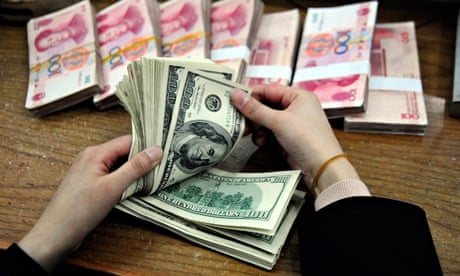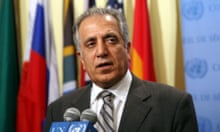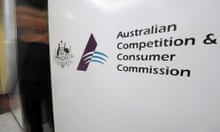China's state broadcaster, CCTV, has accused the Bank of China of money laundering, in a rare attack on one of the country's biggest state-owned enterprises. It prompted an immediate denial.
The bank said the scheme was a legitimate pilot project and described the television report as "inaccurate and potentially misleading".
CCTV has criticised both foreign and domestic companies, including well-known brands such as Apple and Starbucks, but has rarely pursued major state enterprises. Its 20-minute investigative package was quickly reported by other mainstream news media in China.
Under China's strict controls, individuals can only exchange $50,000 (£29,200) worth of foreign currency each year. That has left many searching for other ways to transfer their wealth. The Bank of China's You Huitong scheme helps people to send money overseas by transferring the cash in renminbi and then changing it.
The bank said in a statement – later deleted from its microblog account – that the service was part of a pilot programme in line with government policy, for people applying for immigrant investor schemes or buying property overseas.
"In the operation of this service, the Bank of China has followed relevant regulations and anti-laundering requirements and established very strict operating procedures.
"The procedures set unified and clear standards requiring proofs of the uses and sources of the money. The mentions of 'underground finance' and 'money laundering' in the reports are not based in fact." It also noted that several commercial banks were trialling similar services in Guangdong.
Steve Tsang, head of the school of contemporary Chinese studies at the University of Nottingham, said it was very unusual to see such aggressive reporting on a major state-owned enterprise (SOE) in state media.
"It is something which reflects on decisions at a very senior level," he said. "I would be surprised if whoever is in charge at CCTV would have done a report like this without clearing it with the propaganda department, who would therefore have cleared it with someone even more senior."
Making allegations of that kind against such a high-profile SOE could be seen as causing significant reputational damage to China as a whole, he noted. Even if journalists believed they had reliable sources, he said, "if it's politically unacceptable to the leadership, you don't run it".











Comments (…)
Sign in or create your Guardian account to join the discussion